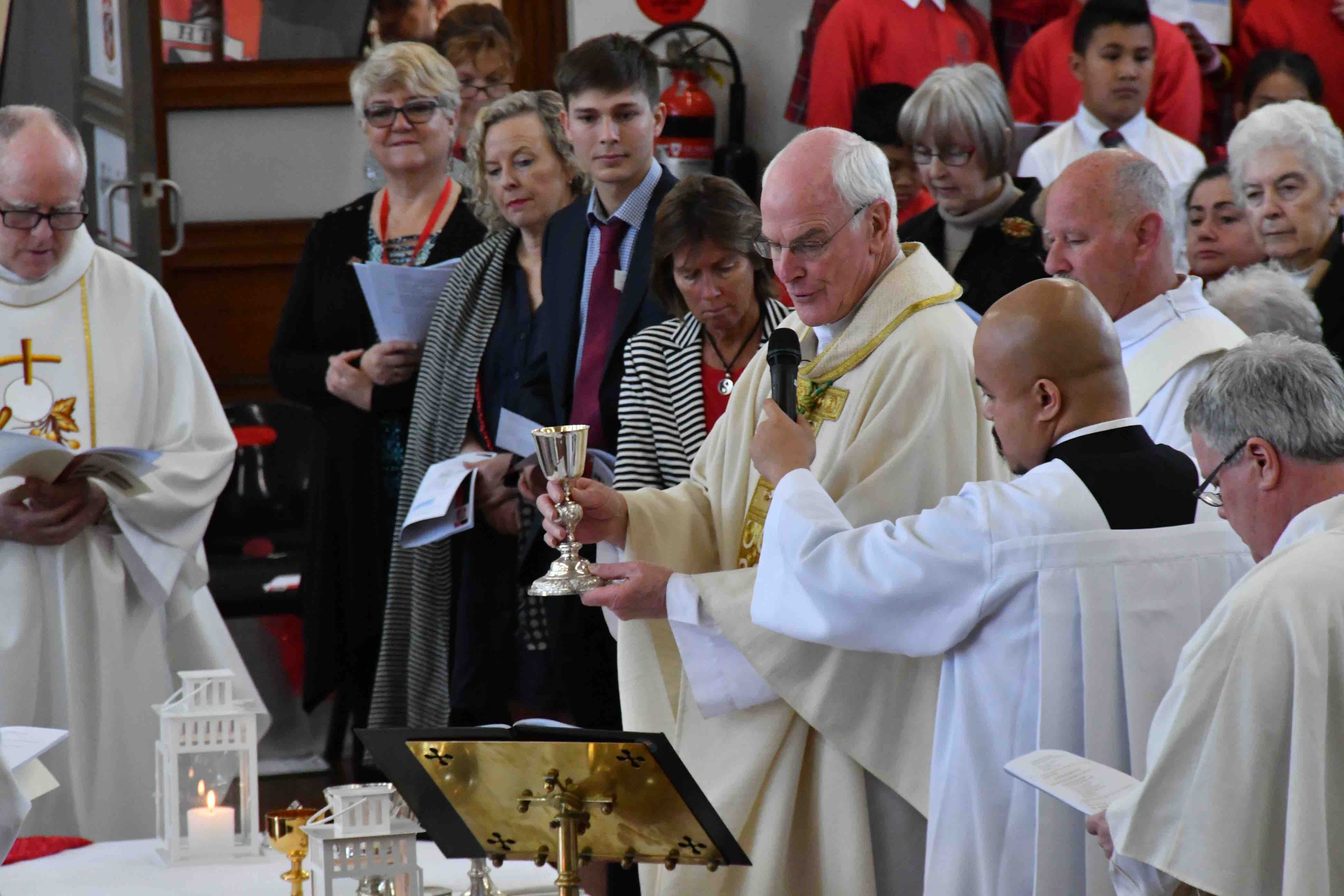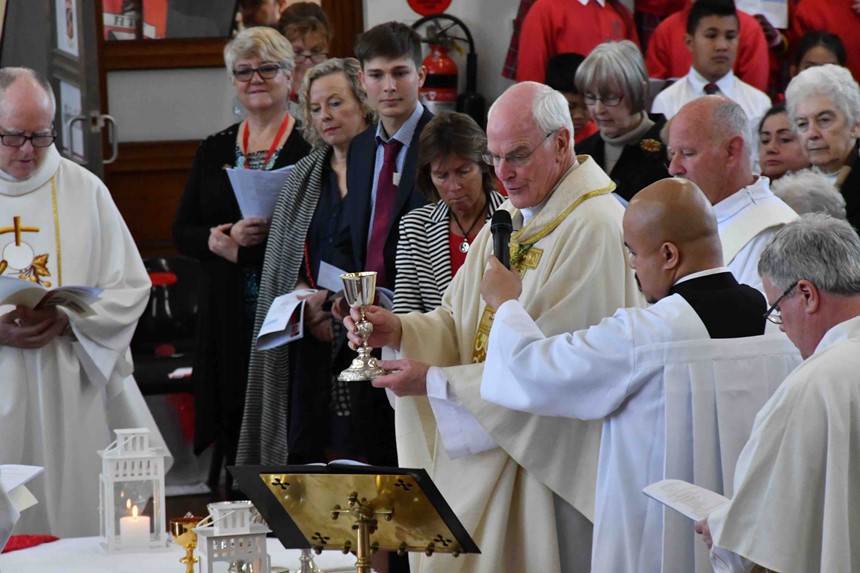Before we begin you might like to take a moment to gather your reflections from the first, second and third articles in this series. As we have seen, the order in which the Liturgy of the Eucharist unfolds is intentional and purposeful. It is important to remember that the Eucharistic Prayer is the second part of the four-part eucharistic action: take – bless – break – give. There can be no Eucharistic Prayer if no gifts have been presented for blessing/offering. The Eucharistic Prayer finds its purpose in the breaking and giving that follows. Such an appreciation of the Liturgy of the Eucharist is essential if we are to participate as celebrants rather than consumers.
You will recall from the first article in this series that we celebrate the ‘Liturgy of the Eucharist’ in response to having heard the Word of God. What a gift Sunday’s Gospel (Mt 13:1-23) is to our reflection today. In the familiar story of the parable of the sower, God is inviting us to not just look but to see, to not just listen but to hear … so that we perceive and understand. Mystagogical reflection helps us do just that, especially with texts like the Eucharistic Prayer that are so familiar that we can become dull to their power and meaning.
So, as we turn our attention to the text of one of our Eucharistic Prayers, you are invited to use our three mystagogical questions to guide your reflection:
- What did you notice?
- What does it reveal to you/us (about God, Christ, the church, the liturgy …)?
- What does it ask of you/us?
The text viewed via the link below includes the rubrics. As we have noted previously, the text itself is not the liturgy. As you reflect on the following text imagine praying it as a member of the assembly.
Click here to read Eucharistic Prayer III


What did you notice? What is God revealing to you? Are we celebrants or consumers?
As celebrants we ‘perceive and understand’ this to be our prayer, the prayer of the assembly. What did you notice about the language? It is all in the plural. It is ‘our duty and our salvation.’ ‘Therefore, O Lord, we humbly implore you …’ We ask for the gifts we have presented to be made holy through the Spirit! ‘Therefore, O Lord as we celebrate the memorial …’. The opening dialogue demands that we lift up our hearts and give thanks to God. As a celebrant it is incumbent on me to fully, consciously and actively participate in this prayer because it is ours, and we have declared that it is ‘right and just’ that we do so! The presider may voice the prayer, but he does so in the name of all of us. (cf. GIRM a.78)
As celebrants we ‘perceive and understand’ that we are offering ourselves through, with and in Christ and in the unity of the Holy Spirit, so that we will be changed: (cf. GIRM a. 95)
Look, we pray, upon the oblation (offering) of your Church
and, recognising the sacrificial Victim by whose death
you willed to reconcile us to yourself,
grant that we, who are nourished
by the Body and Blood of your Son
and filled with his Holy Spirit,
may become one body, one spirit in Christ.
As celebrants we ‘perceive and understand’ that we are part of the offering. This is a terrifying thing to think about. Not only because I am laying myself bare to be changed by God, but because we are being made into a holy communion with all the implications of what it means to be a member of a community responsible for continuing God’s mission in the world?
In reflecting on this I am reminded of my favourite quote from Annie Dillard
Does anyone have the foggiest idea what sort of power we so blithely invoke? Or, as I suspect, does no one believe a word of it? The churches are children playing on the floor with their chemistry sets, mixing up a batch of TNT to kill a Sunday morning. It is madness to wear ladies’ straw hats and velvet hats to church; we should all be wearing crash helmets. Ushers should issue life preservers and signal flares; they should lash us to our pews. For the sleeping god may wake someday and take offense, or the waking god may draw us out to where we can never return.
A lot of us have been reflecting on what we have missed by not being able to participate in the celebration of Eucharist. Many people talk about missing being able to receive communion. Many talk about missing the community. Many talk about missing both in equal measure. To be honest, what I miss is the opportunity of joining with my brothers and sisters in offering ourselves to God with Christ and in the power of the Holy Spirit. I need to be shaped by our loving God. I need to be shaped into community. What an opportunity God has given us to be able to join ourselves to Christ in the liturgy so we learn the steps of the paschal mystery in order to walk those paschal steps meaningfully every day. We are the offering. This is what I miss.
What have you missed? What are you continuing to miss? What are you reflecting on? Are we celebrants or consumers? It matters to us and more importantly it matters to the world. There is much to ponder. Much to see and to hear and to understand with our hearts that we might be converted and healed … as God revealed in Sunday’s gospel.
In the next Liturgy Matters we will focus on the third of the four-part action – the Fraction Rite.
Acknowledgements
Prayers and references to the General Instruction of the Roman Missal are from the English Translation of the Roman Missal © 2010 International Committee on English in the Liturgy Inc. (ICEL). All rights reserved.
Photo: © Diocese of Maitland-Newcastle. All rights reserved.
Image by PublicDomainPictures from Pixabay

